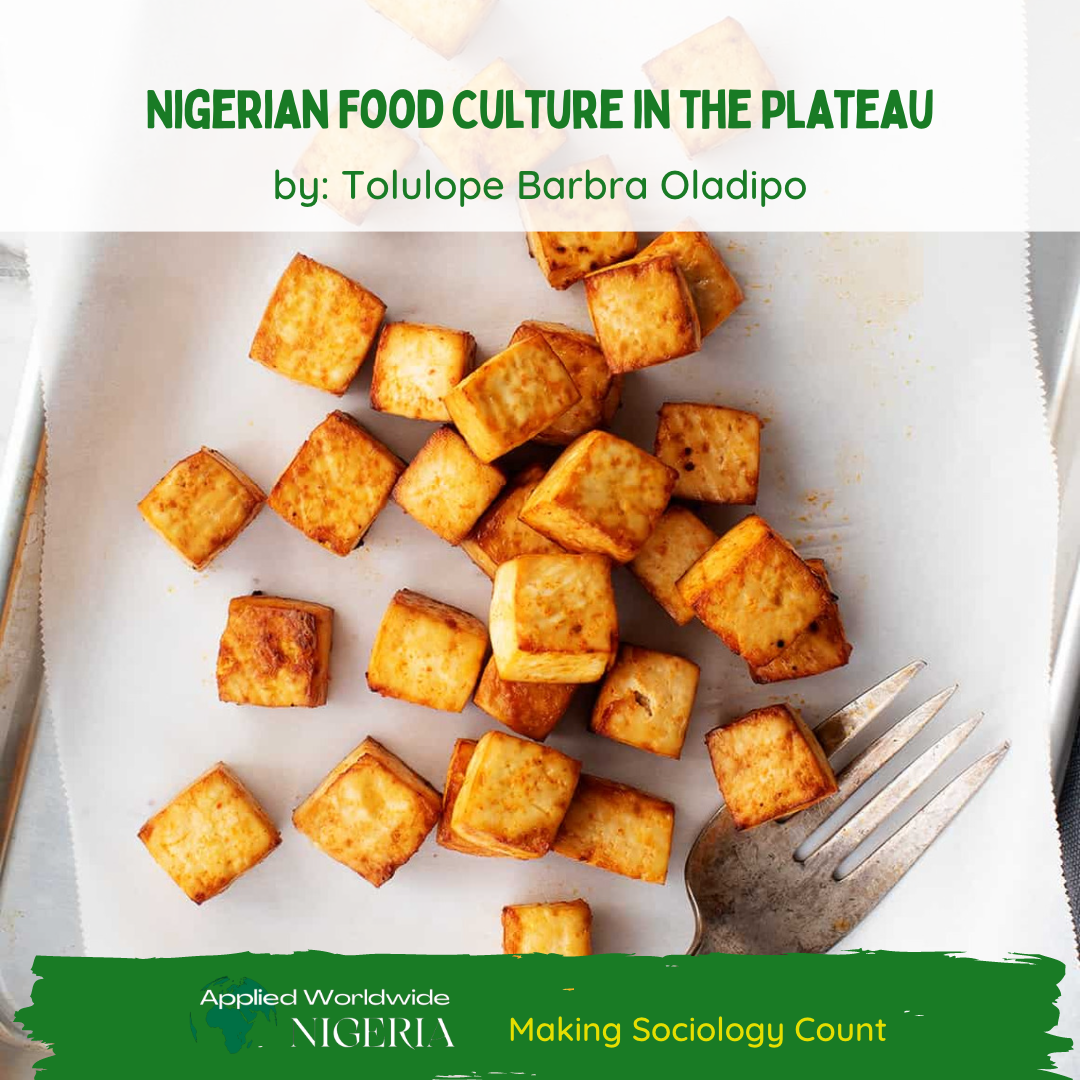Food is a universal love language that connects and brings people together. To every individual, ethnicity, and culture in the world, food has a different meaning to each and every person. In this article, we will look at the Nigerian food culture in the Plateau.
According to Marcus Samuelsson, food is powerfully symbolic and really complex. Through food, we express love. We bring comfort and hope. We forge new relationships and strengthen old bonds.
Food reaffirms not only our humanity but also the joy of being alive. It’s a fact that we’ve all experienced the healing power of a good meal as it serves as medicine, which has a tremendous effect on our physical body and health. The meaning of food has a deep-rooted power that transcends physical levels.

The meaning of food is universal and unique to every tribe, religion, culture, and tradition, as it is ingrained in the emotional, mental, and spiritual realms. Over the years, we humans have built so much motion around food. We have family meals, holiday dinners, birthdays, dates, and even anniversaries.
All this sentiment about food has left us with an indelible mark to prove that food goes far and beyond; we see it on our television screens, smartphones, recipe books, social applications, and so much more, and with that, it has given us the opportunity to bond with people who mean the most to us, and in that way, food has become an incredible identity marker.
Food Culture
Food culture can be said to be habits, rituals, practices, belief systems, values, lifestyles, traditions, and customs centered around growing, producing, procuring, cooking, eating, serving, and celebrating food. Family history, lineage, heritage, and ethnicities; geographic divides and climates; and social and political situations such as poverty and war all heavily influence food culture. The food culture is influenced by individuals, small networks, and institutions, such as families, or large ones, such as societies, companies, and countries.
Food has incredible meaning and a high level of importance in society. It ranges from religious and customary practices as people identify themselves through specific types of meals. For some or many, holidays and celebrations hold the strongest impressions of food. Memories are symbols of tradition, love, family, connection, and a way of life for a community. Celebrations like Christmas, Id-el-Kabir, Easter, Id-el-Maulud, or any other religious holiday are the same for everyone across the globe as they stand to share one connecting factor, which is the sharing of love (food) with one another.
Nigerian Food Culture
Culture is defined as the way of life of a group of people. Nigeria, as a multicultural country, is blessed with different varieties of meals, depending on the region in which you find yourself. On the plateau, here are some of the local delicacies enjoyed in this region: We have Gwate made from “acha” (fonio, or hungry rice). It is prepared with vegetables like spinach, spring onions, white zobo leaves, biscuit bones, etc.
Masa is like a pan-fried rice cake; though the method of preparation can vary, the basic usage of rice never changes. It is a round-shaped ball eaten with either “soup” (miyan taushe) or “yaji” (dried spicy pepper). Amora is usually common among the southern people of Plateau State. It’s a porridge made from a starch plant (Cocoyam Corm).
Tofu is “awara,” a healthy and tasty snack made from soya beans. It is made from curds gotten from soya milk. It’s usually fried and eaten with a spicy sauce, or “yaji.” And these are some of the delicacies people around the world should experience once in their lifetime.
Nigerian Food Culture in the Plateau
Nigeria has over 250 ethnic tribes, and these ethnic groups speak over 500 different languages with varying cultures and traditions. Being a true-born Wazobia, I have had the privilege of having a taste of the 3 major ethnic groups (Yoruba, Igbo, and Hausa). Born and raised in Plateau State, “The Home of Peace and Tourism,” It is popularly known for mining production, agriculture, and its wide variety of vegetation.

Plateau is known for its abundant raw food products that range from acha (a grain known as “hungry rice”) and millet, which are the chief cash crops; yams, sorghum, corn (maize), potatoes, cowpeas, rice, fruits, and vegetables are the staple crops. Among other food products, the major exports of the state are cash crops like Irish potatoes, apples, grapes, wheat, barley, and vegetables.
Plateau produces about 200,000 tons of Irish potatoes annually, as they are grown throughout the year and irrigated during the dry season. Some of the varieties of crops grown and found in this region are strawberries, cucumbers, cabbage, carrots, soursop, blueberries, apples, watermelon, sugarcane, grapes, broccoli, asparagus, lemons, bell peppers, and many others.
Final Thoughts
In buttressing the importance of food culture, in recent times, people who relocate to a different country or are away from home often take food with them as a reminder of home. This serves as a connection to those specific and unique foods, and it reminds them of what they love. The foods bring back emotions, memories, feelings, and a sense of who they are. Oftentimes, all it takes is a taste of a familiar food or meal to bring back a flood of memories. It is quite profound when one bite of food can bring you back home.




